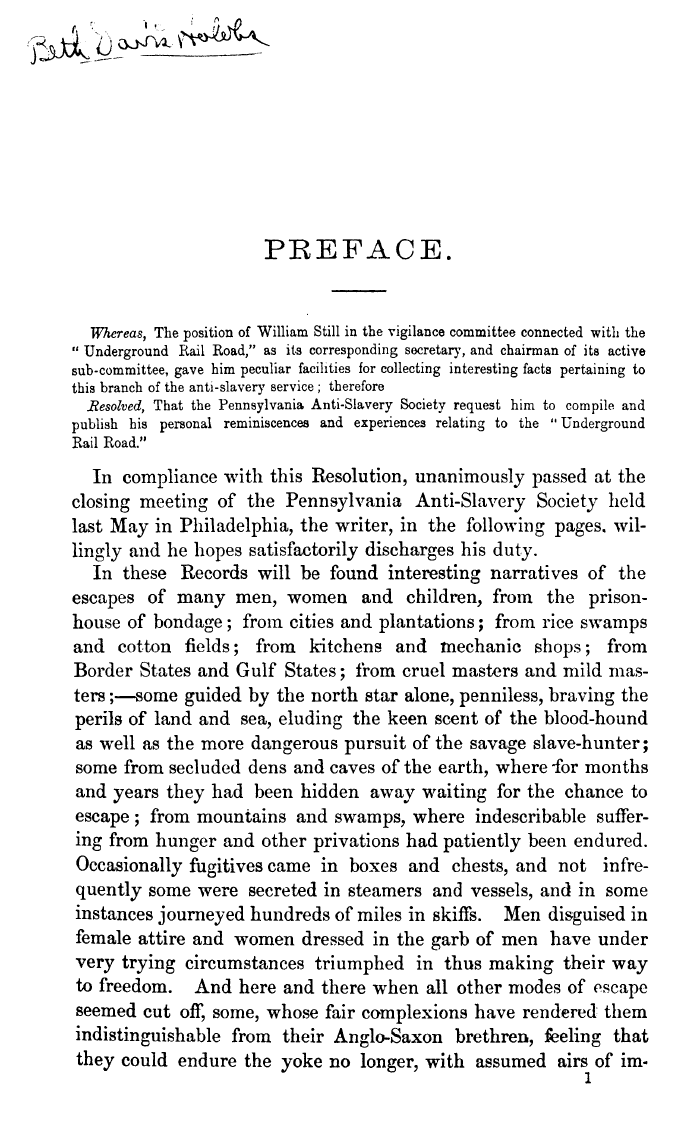 |
||||
 |
||||
| PREFACE. Whereas, The position of William Still in the vigilance committee connected with the " Underground Rail Road," as its corresponding socretary, and chairman of its active sub-committee, gave him peculiar facilities for collecting interesting fact pertaining to this branch of the anti-slavery service ; therefore Resolved, That the Pennsylvania Anti-Slavery Society request him to compile and publish his personal reminiscence8 and experiences relating to the " Underground Rail Road." In compliance with, this Resolution, unanimously passed at the closing meeting of the Pennsylvania Anti-Slavery Society held last May in Philadelphia, the writer, in the following pages, willingly and he hopes satisfactorily discharges his duty. In these Records will be found interesting narratives of the escapes of many men, women and children, from the prison-house of bondage; from cities and plantations; from rice swamps and cotton fields; from kitchens and mechanic shops; from Border States and Gulf States; from cruel masters and mild mas-ters;—some guided by the north star alone, penniless, braving the perils of land and sea, eluding the keen scent of the blood-hound as well as the more dangerous pursuit of the savage slave-hunter; some from secluded dens and caves of the earth, where for months and years they had been hidden away waiting for the chance to escape; from mountains and swamps, where indescribable suffer-ing from hunger and other privations had patiently been endured. Occasionally fugitives came in boxes and chests, and not infrequently some were secreted in steamers and vessels, and in some instances journeyed hundreds of miles in skiffs. Men disguised in female attire and women dressed in the garb of men have under very trying circumstances triumphed in thus making their way to freedom. And here and there when all other modes of escape seemed cut off, some, whose fair complexions have rendered them indistinguishable from their Anglo-Saxon brethren, feeling that they could endure the yoke no longer, with assumed airs of im- |